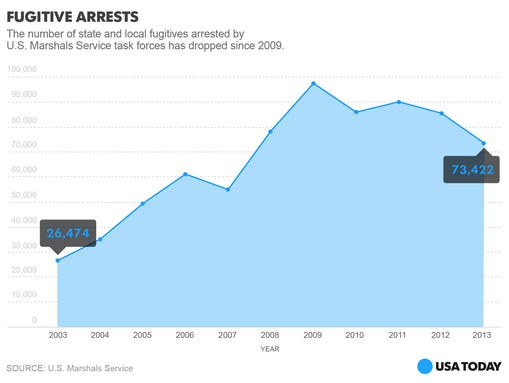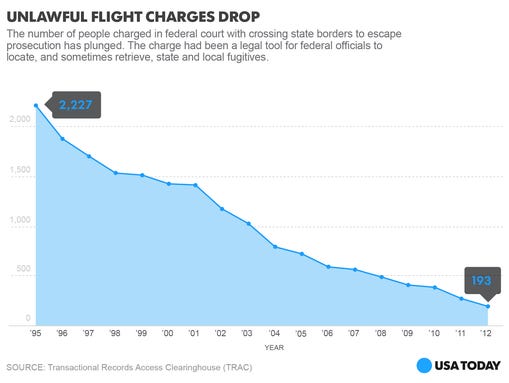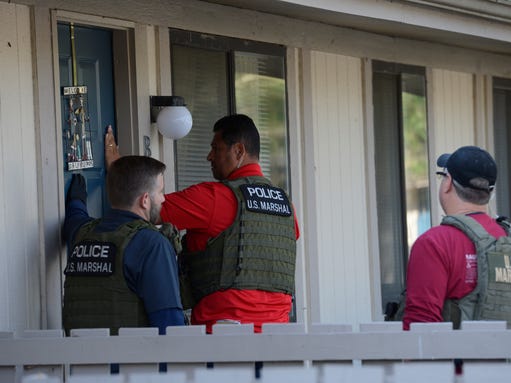Teams of federal agents assigned to track down people on the run from serious criminal charges are locking up thousands of fewer fugitives, even as more local police agencies say they lack the time and money to chase them on their own.
Arrests by those teams, led by the U.S. Marshals Service, have plunged nearly 25% since their peak in 2009, mostly because the Marshals Service narrowed the types of cases its officers can investigate. The result is that agents arrested nearly 24,000 fewer fugitives for state and local crimes last year than they had five years earlier, according to Marshals Service reports.
Those fugitive teams are part of a decade-old attempt by the federal government to help overwhelmed police departments locate felony suspects they couldn't track down by themselves, especially those who flee beyond the reach of local police.
 |
| CLICK CHARTS to ENLARGE |
"In the bad budget times, we had to refocus our priorities," said Jeff Tyler, the Marshals Service's head of domestic investigations who oversees its fugitive-tracking offices. "We recognize that just going after every fugitive available, we didn't have the resources to do it."
Instead, he said, the agency's fugitive task forces now focus almost exclusively on tracking down the "worst of the worst," particularly violent fugitives, who often take longer to find. The Marshals Service also has quietly shelved a suggestion to expand its fugitive-hunting teams into 11 other regions around the country.
 |
| CLICK CHARTS to ENLARGE |
The policy changes frustrate critics who say the federal government needs to stake out a bigger role in helping local police agencies find — and, in particular, retrieve — fugitives, particularly when they escape across state lines.
"They should be doing more of this, not less," said former New York police commissioner Howard Safir, who helped start some of the Marshals Service's first fugitive-hunting units in the 1980s. "Very often, these guys end up on the street committing other crimes."Read the rest of the story HERE.
If you like what you see, please "Like" us on Facebook either here or here. Please follow us on Twitter here.




No comments:
Post a Comment